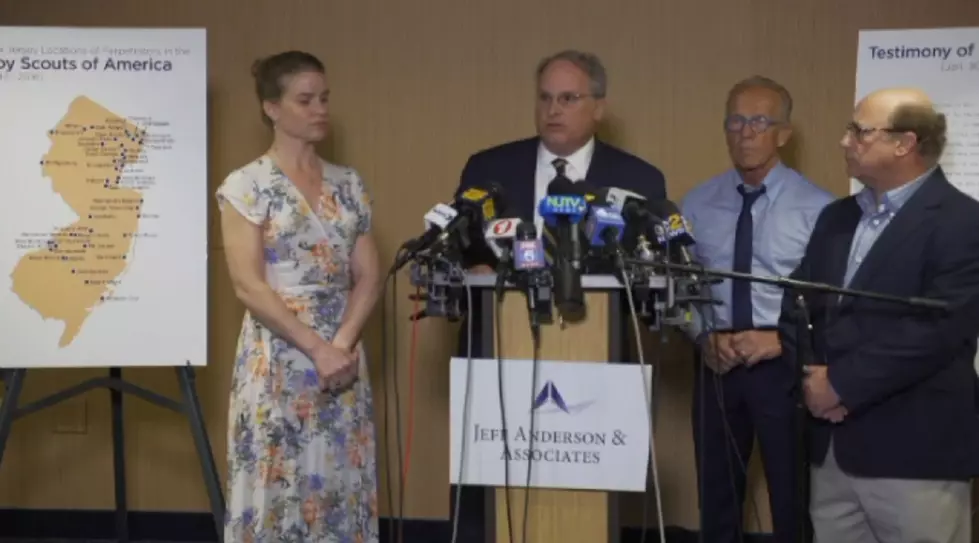
Boy Scouts want national perv database, but they can’t release theirs
The Boy Scouts of America wants a national database of suspected and confirmed deviants so that nonprofits can perform thorough background checks for adults working with children.
The nonprofit has its own internal collection of data but officials say they can't publicly release it because of privacy and legal concerns.
The names of 50 New Jersey scout leaders accused of abusing minors were published on Tuesday by the law firm Jeff Anderson & Associates. The firm had reviewed files released by the Boy Scouts in 2012 in a 14,500 page report informally called the "Perversion Files." Its official name is the Ineligible Volunteer Files. It contains names of suspected violators up through the 1980s.
The firm said there are additional, more recent names of perpetrators in the report, which has not been released by the Boy Scouts.
“It shouldn’t be us disclosing these names. It should be the Boy Scouts," said attorney Greg Gianforcaro, whose firm partnered with Jeff Anderson & Associates.
In a news conference on Wednesday, the organization tried to explain what their database can and can't do.
Janet Warren, professor of psychiatry and neurobehavioral sciences at the University of Virginia who was hired by the Boy Scouts to audit their youth safety efforts, defended the nonprofit's internal data collection as a program that has worked well for nearly 100 years.
Warren said that during the course of her investigation, she found no evidence of coverup by the Boy Scouts
"100% of all the cases reported over the last 50 years have been reported to law enforcement," Warren said.
Warren said her research has concluded the internal files should be used as a model for a national database of "persons unsuitable to work with youth." She said criminal record checks and offender registries are "inadequate to protect against offenders who have never been arrested or convicted."
Information on the database of the National Association of State Directors of Teacher Education and Certification, for example, allows member states, school districts and private schools to find out whether a teacher has lost a license in another state. The nonprofit encourages schools to search the database even for positions that may not require certification, such as an athletic coach, because educators who lose their licenses in one state sometimes will try to apply for a non-certified job in another. But the database doesn’t show everything.
Michael Surbaugh, chief scout executive, said the Boy Scouts are not an investigative agency and the first step taken for any allegation of abuse is to immediately remove the volunteer. If an investigation continues by law enforcement, a decision is made about placing the individual on the list permanently.
If there is no conviction or charges resulting from a law enforcement investigation, Surbaugh said the accused person could still be permanently banned from Boy Scouts.
The names are not made pubic because people are added to the list based on suspected violations and they have not always been convicted of any crime, Eisner said.
Jeff Anderson & Associates raised the possibility at their press conference of a potential flood of lawsuits that could result if Gov Murphy signs a bill, S-447, which would remove the statue of limitations in certain civil actions for sexual abuse and expands categories of defendants liable in such actions.
New York's law takes effect in August while California and Pennsylvania are also considering similar measures.
"An increasing number of lawsuits has put financial pressure on the Boy Scouts of America," Surbaugh said, adding that declaring bankruptcy is an option on the table with the group's board of directors.
"We support victims and we believe victims. When victims come forward we hope there's a way we can equitably compensate victims. Our board is looking at all of those options and is very aware of the changes in the law. Our board is constantly evaluating our position," he said.
More from WOBM:
More From Beach Radio










